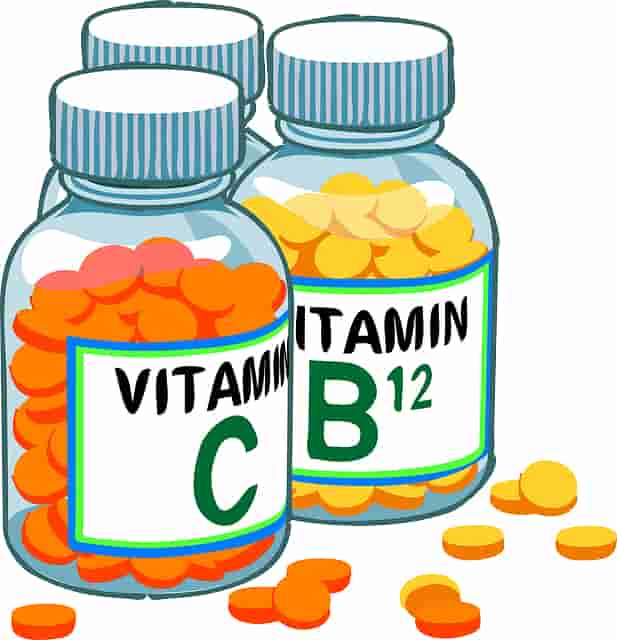WHAT ARE THE MICRONUTRIENTS
What are the micronutrients- The importance of minerals and vitamins in the diet was not known until the mid-19th century. It was observed that the presence of only carbohydrates, fats, and proteins does not lead to proper growth and development. Therefore, scientists started efforts in this direction, which are the elements that are needed for proper growth and development of the body and body protection.
There are two types of Micro Nutrients in general – VITAMINS and MINERALS, both of which are a very small part of the total portion of the food. Micronutrients play an important role in the physical development and well being of a person, as well as in the regulation of metabolism, in maintaining bone density, heartbeat, and cellular ph.
Lack of micronutrients affects the body’s physical growth and increases the risk of many diseases. Due to lack of micronutrients, humans can suffer from many diseases like scurvy which is caused by a deficiency of vitamin c, rickets is due to deficiency of vitamin d, osteoporosis is caused by a deficiency of calcium, etc.
VITAMINS
The word vitamin is derived from the Latin word vital + amines. The term vital amine means a mixture containing essential nitrogen. This term was coined by a scientist named “Funk” from Poland. In fact, vitamins are essential for life and health. It regulates metabolism, helps in growth, and protects the body from diseases. Hence, they are also called protective substances. A biochemist “Sir Frederick Gowland Hopkins” was awarded the Nobel Prize for the discovery of vitamins in the year OF 1929
Vitamins are also carbonic substances that are found in microscopic amounts in food. Correct selection of suitable food items is necessary to fulfill their requirement. The body needs 13 vitamins, out of which the body can produce vitamin D and vitamin K.
Vitamin can be broadly divided into two forms –
- FAT SOLUBLE VITAMINS
- WATER SOLUBLE VITAMINS
Water-soluble vitamins are easily lost through bodily fluid and must be replaced each day. B complex vitamins and vitamins C are water-soluble vitamins. Vitamin B6 and B12 are two of the most well known B-complex vitamins. Since they are not lost as easily as their water-soluble counterparts, fat-soluble vitamins tend to accumulate within the body and are not needed on daily basis. A, D, E, and K are the fat-soluble vitamins
FAT SOLUBLE VITAMINS
All the vitamins with their scientific names
- VITAMIN A– scientific name RETINOL
- VITAMIN D -scientific name CALCIFEROL
- VITAMINE E -scientific name TOCOPHEROL
- VITAMIN K– scientific name PHYTONADIONE
WATER-SOLUBLE VITAMINS
- VITAMIN B1 – scientific name THIAMIN
- VITAMIN B2– scientific name RIBOFLAVIN
- VITAMIN B3– scientific name Niacin
- VITAMIN B5– scientific name PANTOTHENIC ACID
- VITAMIN B6 – scientific name PYRIDOXINE
- VITAMIN B7 – scientific name BIOTIN
- VITAMIN B9 – scientific name Folic Acid
- VITAMIN B12 – scientific name CYANOCOBALAMINE
- VITAMIN C – scientific name ASCORBIC ACID
MINERALS
Mineral salts are those elements, which often remain in the form of ash when the tissues of plants and animals are burnt. More than 19 mineral salts are found in the human body. Those elements are injected with food. About 4-5 percent of the body contains mineral salts.
Some of the major mineral salts present in the body are- calcium, phosphorus, iron, iodine, sodium, potassium, zinc chlorine, etc. We get all these mineral salts from our food. Of these, calcium, phosphorus, sodium, potassium, chlorine, and magnesium are required in high amounts. Of the mineral salts contained in the body, three-fourths of it is of calcium and phosphorus. The remaining fraction mainly consists of five other mineral salts. Most of these elements remain in such small quantities, that the trace element or molecule consumes nutrients. Macrominerals are those which require 100 m.g or more in daily life and the micro mineral requirement is a minimum of 100 m.g.
Minerals are also available in two forms-
MACROMINERALS–
macro minerals are needed in larger amount and included the following:-
- CALCIUM,
- POTASSIUM,
- SODIUM,
- PHOSPHORUS,
- MAGNESIUM.
MICROMINERALS–
micro minerals are only needed in trace amount and included the following: –
- IRON,
- ZINC,
- IODINE,
- COPPER,
- FLUORIDE.
The importance of mineral salts in the body is in various ways. These mineral salts are essential for the manufacture of various organic compounds such as phosphoprotein, phospholipid, hemoglobin, and thyroxine. The body’s hard bones are formed from elements such as calcium, phosphorus, and magnesium, and the formation of soft tissues is caused by relatively high amounts of potassium. Mineral elements are also required for the formation of enzymes. Similarly, these elements are also necessary for maintaining osmotic pressure and water balance inside and outside the cells, functioning properly in the nervous system, and contraction of muscles.


